by Francis Bacon - Master of the Grotesque
Art as distraction. You see, all art has now become completely a game by which man distracts himself; and you may say it has always been like that, but now it's entirely a game. | Futility of being. I think that man now realizes that he is an accident, that he is a completely futile being, that he has to play out the game without reason. | Accident. I use very large brushes, and in the way I work I don't in fact know very often what the paint will do, and it does many things which are very much better than I could make it do. Is that an accident? [...] I think that accident, which you would call luck, is one of the most important aspects of my work. | Potential carcasses. Well, of course, we are meat, we are potential carcasses. If I go into a butcher’s shop I always think it’s surprising I wasn’t there instead of the animal. | No stories. In the complicated stage in which painting is now, the moment there are several figures - at any rate several figures on the same canvas - the story begins to be elaborated. And the moment the story is elaborated, the boredom sets in; the story talks louder than the paint. This is because we are actually in very primitive times once again, and we haven't been able to cancel out the story-telling between one image and another. | Tightrope. Painting a portrait is a tightrope walk between what is called figurative painting and abstraction. [...] It's an attempt to bring the figurative thing up onto the nervous system [...] violently and [...] poignantly. | Justification. You can't be more horrific than life itself. | Interwiew with David Sylvester, 1962
Abstract painting even at its very best, can be never more than lyrical, charming and decorative. It never finally unlocks, like great art can do, unlock the valves of feeling by the attempt to record the facts. What every artist needs today is a profound technical imagination. Technique by which he can reset the trap in which the image he wants to record can be trapped again. There are two things you can record. You can record a very factual thing, like a portrait of somebody, and you can also record your sensations about various things. Now you should know how you can record without illustrating. The great recording of facts today can only be made through accident. And the painter himself [...] has to work with the accident out of which he finally chooses the marks he wants to leave and can remake the image. The more unrelated the [accidental] mark is, of what is called an illustration of the fact, the more deeply can possibly [...] unlock all areas of feeling, which very great art has always done. Because it was not only recording a fact, but it has also unlocked all sorts of areas of sensation at the same time of recording, doing both, doing a double thing. | "Francis Bacon," pilot interview with Julian Jebb, London: BBC, recorded 1965, not broadcast
Transitoriness. You must never forget that every object has its passions. It has its implications. After all, life... we have this short moment of existence. To paint it’s a way... —we talk about Proust— of crystallizing time. And of crystallizing the moment of one’s existence and that’s all we have. Why one wants to do this? You may say it’s a mystery. We shan’t ever know whether we’ve done it. And perhaps it’s just a way of passing the time. "Stripped Down to What’s Real," interview with David Jones, London: BBC, broadcast 29 October 1971 on BBC2
Violence and Sensation. I used to think how marvellous these extraordinary carcasses are hanging in great butcher shops, hanging from the wall, how amazing their colour was, how beautiful they looked... What could I make to compete with what goes on every single day? If you read the newspapers, if you look at television, if you know what's going on in the world, what could I do that competes with the horror that 's going on? Except that I have tried to make images of it. I have tried to recreate it and make not the horror but I've tried to make images of realism. After all between birth and death it's always been the same thing. There's always been [...] the violence of life. I always think [I make] images of sensation. After all, what is life but sensation? [...] I believe in nothing: we are born and we die and that's it, there's nothing else. Voluptua is all we want, voluptuousness... isn't it a lovely word? Everything else is a falling away. "Francis Bacon," conversation with Melvyn Bragg, The South Bank Show, London, 1985
Additional reesources
Entrevista con David Sylvester, 1962. Arte como distracción, futilidad de ser, accidentes, carcasas potenciales, evitar la narrativa, entre lo figurativo y lo abstracto, horror y realidad.
Ades
Turano
Art as distraction. You see, all art has now become completely a game by which man distracts himself; and you may say it has always been like that, but now it's entirely a game. | Futility of being. I think that man now realizes that he is an accident, that he is a completely futile being, that he has to play out the game without reason. | Accident. I use very large brushes, and in the way I work I don't in fact know very often what the paint will do, and it does many things which are very much better than I could make it do. Is that an accident? [...] I think that accident, which you would call luck, is one of the most important aspects of my work. | Potential carcasses. Well, of course, we are meat, we are potential carcasses. If I go into a butcher’s shop I always think it’s surprising I wasn’t there instead of the animal. | No stories. In the complicated stage in which painting is now, the moment there are several figures - at any rate several figures on the same canvas - the story begins to be elaborated. And the moment the story is elaborated, the boredom sets in; the story talks louder than the paint. This is because we are actually in very primitive times once again, and we haven't been able to cancel out the story-telling between one image and another. | Tightrope. Painting a portrait is a tightrope walk between what is called figurative painting and abstraction. [...] It's an attempt to bring the figurative thing up onto the nervous system [...] violently and [...] poignantly. | Justification. You can't be more horrific than life itself. | Interwiew with David Sylvester, 1962
Abstract painting even at its very best, can be never more than lyrical, charming and decorative. It never finally unlocks, like great art can do, unlock the valves of feeling by the attempt to record the facts. What every artist needs today is a profound technical imagination. Technique by which he can reset the trap in which the image he wants to record can be trapped again. There are two things you can record. You can record a very factual thing, like a portrait of somebody, and you can also record your sensations about various things. Now you should know how you can record without illustrating. The great recording of facts today can only be made through accident. And the painter himself [...] has to work with the accident out of which he finally chooses the marks he wants to leave and can remake the image. The more unrelated the [accidental] mark is, of what is called an illustration of the fact, the more deeply can possibly [...] unlock all areas of feeling, which very great art has always done. Because it was not only recording a fact, but it has also unlocked all sorts of areas of sensation at the same time of recording, doing both, doing a double thing. | "Francis Bacon," pilot interview with Julian Jebb, London: BBC, recorded 1965, not broadcast
Transitoriness. You must never forget that every object has its passions. It has its implications. After all, life... we have this short moment of existence. To paint it’s a way... —we talk about Proust— of crystallizing time. And of crystallizing the moment of one’s existence and that’s all we have. Why one wants to do this? You may say it’s a mystery. We shan’t ever know whether we’ve done it. And perhaps it’s just a way of passing the time. "Stripped Down to What’s Real," interview with David Jones, London: BBC, broadcast 29 October 1971 on BBC2
 |
| Double-Edged: Bacon |
Violence and Sensation. I used to think how marvellous these extraordinary carcasses are hanging in great butcher shops, hanging from the wall, how amazing their colour was, how beautiful they looked... What could I make to compete with what goes on every single day? If you read the newspapers, if you look at television, if you know what's going on in the world, what could I do that competes with the horror that 's going on? Except that I have tried to make images of it. I have tried to recreate it and make not the horror but I've tried to make images of realism. After all between birth and death it's always been the same thing. There's always been [...] the violence of life. I always think [I make] images of sensation. After all, what is life but sensation? [...] I believe in nothing: we are born and we die and that's it, there's nothing else. Voluptua is all we want, voluptuousness... isn't it a lovely word? Everything else is a falling away. "Francis Bacon," conversation with Melvyn Bragg, The South Bank Show, London, 1985
Additional reesources
Entrevista con David Sylvester, 1962. Arte como distracción, futilidad de ser, accidentes, carcasas potenciales, evitar la narrativa, entre lo figurativo y lo abstracto, horror y realidad.
Ades
Turano

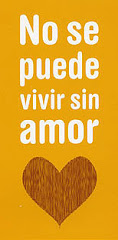
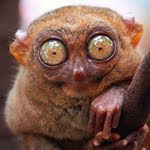
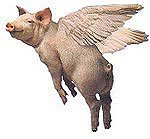
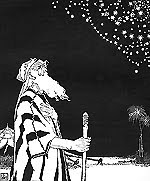
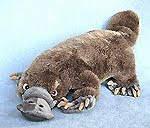
No comments:
Post a Comment